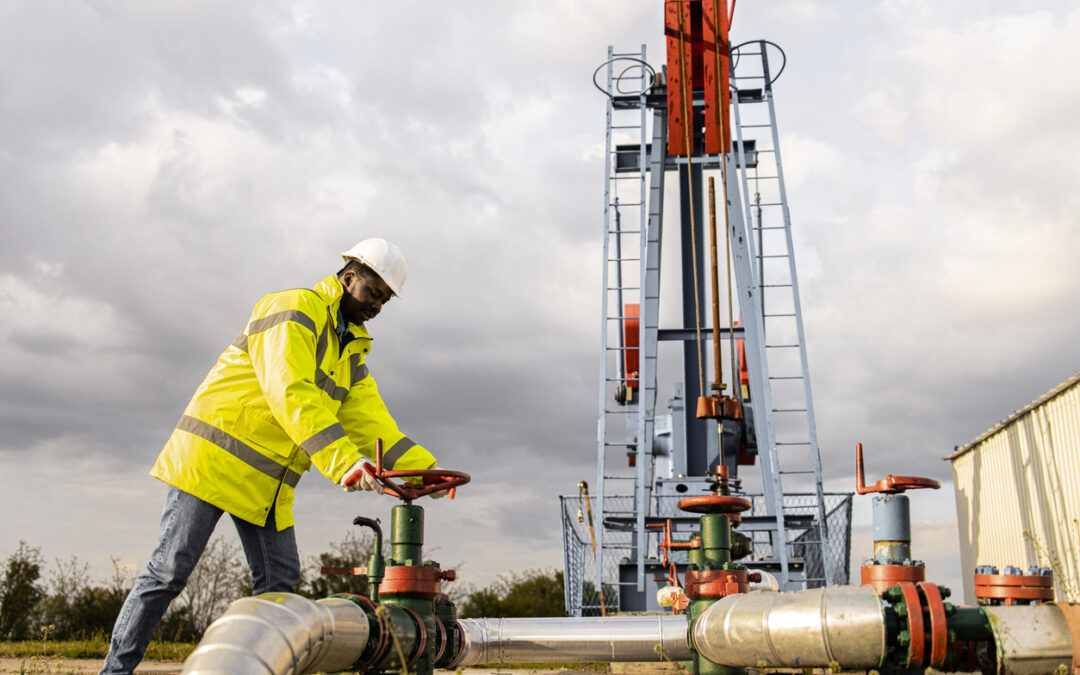How Safe are Houston’s Oilfields?
Oilfield work in Houston, Texas, involves high-risk activities that often result in serious injuries. The nature of the job, combined with the use of heavy machinery and exposure to hazardous materials, makes oilfields some of the most dangerous workplaces. Understanding the common causes of oilfield injuries can help in creating better safety protocols and reducing the risk of accidents.
Let’s explore some of the most common causes of oilfield injuries in Houston and how you can protect yourself:
1. Equipment Failures and Malfunctions
Equipment failures and malfunctions are common in oilfield operations that depend on heavy machinery such as drilling rigs, pumps, and transport vehicles. If machinery is not properly maintained, mechanical failures and pressure failures can happen. It is vital to conduct routine checks and make timely repairs to avoid sudden breakdowns and severe accidents. Neglecting early warning signs, such as strange noises or vibrations, can result in major problems. Providing proper training to all workers is essential to guarantee the correct and safe use of equipment.
2. Inadequate Safety Training
Lack of proper safety training in oilfield operations can result in serious outcomes. If workers are not well-trained, they may not be aware of potential dangers, putting them at risk of preventable accidents. Insufficient training raises the chances of equipment being used incorrectly and malfunctioning. It is important to have adequate emergency response training since oilfields are susceptible to explosions, fires, and chemical spills. Regular training sessions and practice drills help workers respond promptly and efficiently during emergencies.
3. Human Error
Oilfield workers can experience exhaustion from working long hours and performing physically demanding tasks. This fatigue can affect their judgment and slow down their reaction times, increasing the chances of making mistakes like forgetting important safety procedures or mishandling equipment. Due to the high turnover rate in the oil industry, many workers may not have enough experience, which makes them more likely to make errors and miss potential dangers. Without proper supervision, there is a risk that crucial safety protocols might be ignored and workers may not get the guidance they need.
To prevent human error and ensure worker safety, it is crucial to have effective supervision, regular safety meetings, and continuous monitoring in place.
4. Slip and Fall Accidents
Oilfields can be dangerous places due to the presence of slippery surfaces caused by oil spills and wet conditions. These hazards often lead to slip-and-fall accidents, which can result in serious injuries like broken bones, sprains, and head trauma. Inadequate lighting and uneven surfaces only add to the risks, highlighting the importance of proper drainage and prompt cleanup of spills. Additionally, poor housekeeping practices, such as cluttered walkways and scattered tools, create tripping hazards that can range from minor cuts to severe concussions. Without safety measures like anti-slip mats, guardrails, and appropriate footwear, the risk of falls is further increased.
To prevent these accidents, regular safety checks, updated protocols, and a clean, organized work environment are crucial.
5. Falling Objects
Workers on oil rigs often face the danger of falling objects, like tools, pipes, and equipment parts, which can cause severe injuries such as traumatic brain injuries, fractures, and even fatalities. The risk is even higher in areas where multiple operations are happening at the same time. To minimize these risks, it is crucial to properly secure tools and equipment and implement safety measures like netting, guardrails, and tool lanyards. Neglecting these precautions can result in serious accidents and harm to workers.
To ensure a safe working environment, continuous training, regular inspections, and adherence to safety protocols are essential.
6. Chemical Exposure
Oilfield workers face significant health risks due to their regular exposure to hazardous chemicals such as drilling fluids, solvents, and mercury. If not handled properly, these chemicals can cause respiratory problems, chemical burns, and long-term illnesses like cancer. Moreover, chronic exposure can lead to neurological damage and organ failure. Chemical spills and leaks, which can occur due to equipment failure or human error, release toxic substances into the work environment, posing immediate and long-term health hazards.
To mitigate these risks, workers must follow proper safety measures, including regular maintenance, wearing personal protective equipment (PPE), and receiving thorough training on handling hazardous substances. Additionally, emergency response training and easy access to first aid can greatly minimize the impact of chemical exposures.
7. Explosions and Fires
Oilfields deal with extremely flammable substances such as oil, gas, and chemicals. If not handled properly, these materials can cause devastating explosions and fires. These incidents can result in severe burns, respiratory injuries, and even death. Additionally, they can lead to environmental pollution and significant financial losses.
Common sources of ignition include sparks from equipment, electrical faults, and static electricity. It is vital to identify and control these sources through regular maintenance, inspections, and the use of explosion-proof fixtures. To prevent such dangerous events, it is crucial to provide comprehensive training on handling flammable materials and implement strict fire safety measures. This includes the installation of fire suppression systems and conducting emergency drills.
8. Weather Conditions
Houston’s oilfields often face extreme weather conditions like heavy rain, hurricanes, and extreme heat, creating hazardous working environments and increasing the risk of accidents such as slips, falls, and heat-related illnesses. Heavy rain can cause flooding and muddy conditions, complicating machinery maneuvering and raising electrical hazard risks, while hurricanes can necessitate sudden evacuations, cause structural damage, and release hazardous materials. Extreme heat can lead to heat exhaustion and dehydration, impairing worker performance and increasing accident likelihood.
Proper protocols and training are essential to handle these conditions safely, including knowing when to cease operations and evacuate. Implementing emergency response plans, regular weather drills, and robust monitoring systems ensures timely and effective responses, safeguarding worker safety.
Contact Our Oilfield Injury Attorney
If you or a family member has been hurt in an oilfield accident, it’s important to get legal help to make sure you get the right compensation. Oilfield injury cases can be complicated, so it’s crucial to have a personal injury attorney who knows the challenges involved in oilfield accidents. At McKinnon Law, we handle cases related to common causes of oilfield injuries in Houston, Texas, and we are committed to protecting your rights.
Apart from oilfield injuries, our firm also offers legal services in other areas like 18-wheeler truck accidents, car accidents, and premises liability. Our experienced legal team is committed to giving you full support to guide you through your case and get the best possible result.
Call McKinnon Law now at (832) 810-3664 for a consultation concerning your oilfield injury. Let us help you get the compensation you need to recover and move on with your life.

